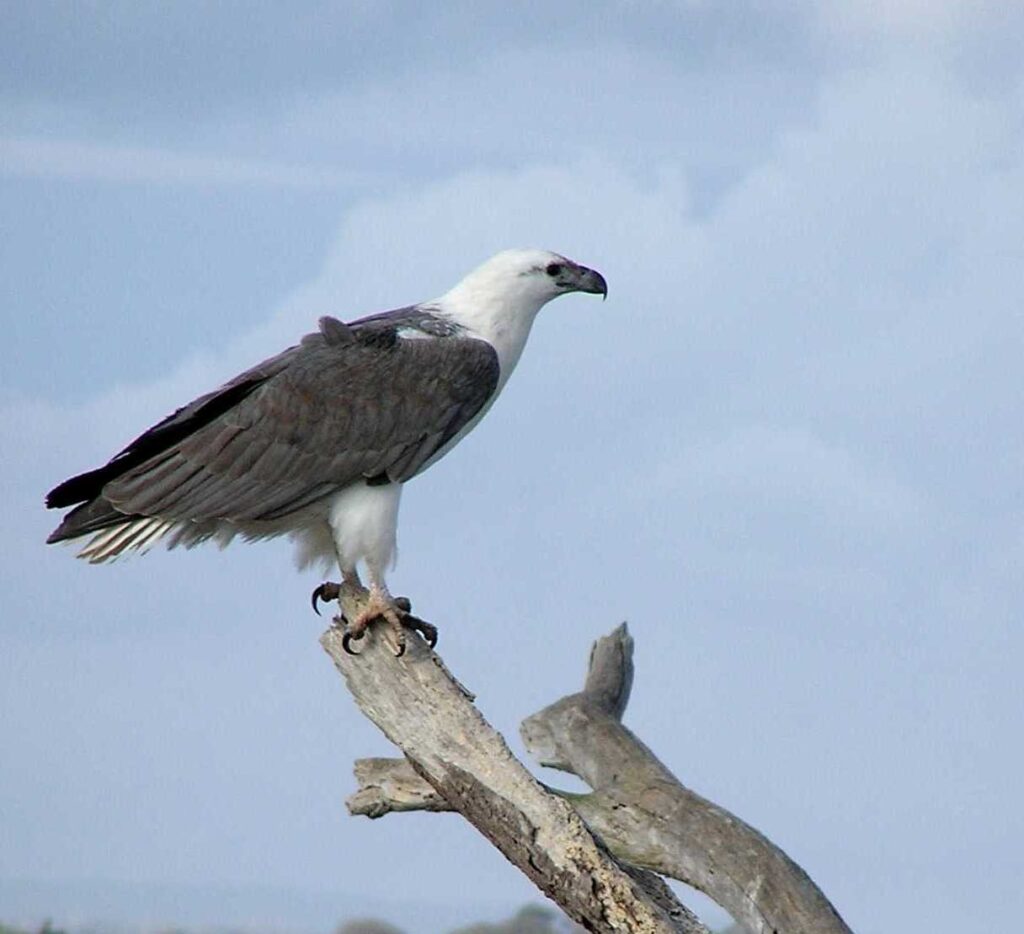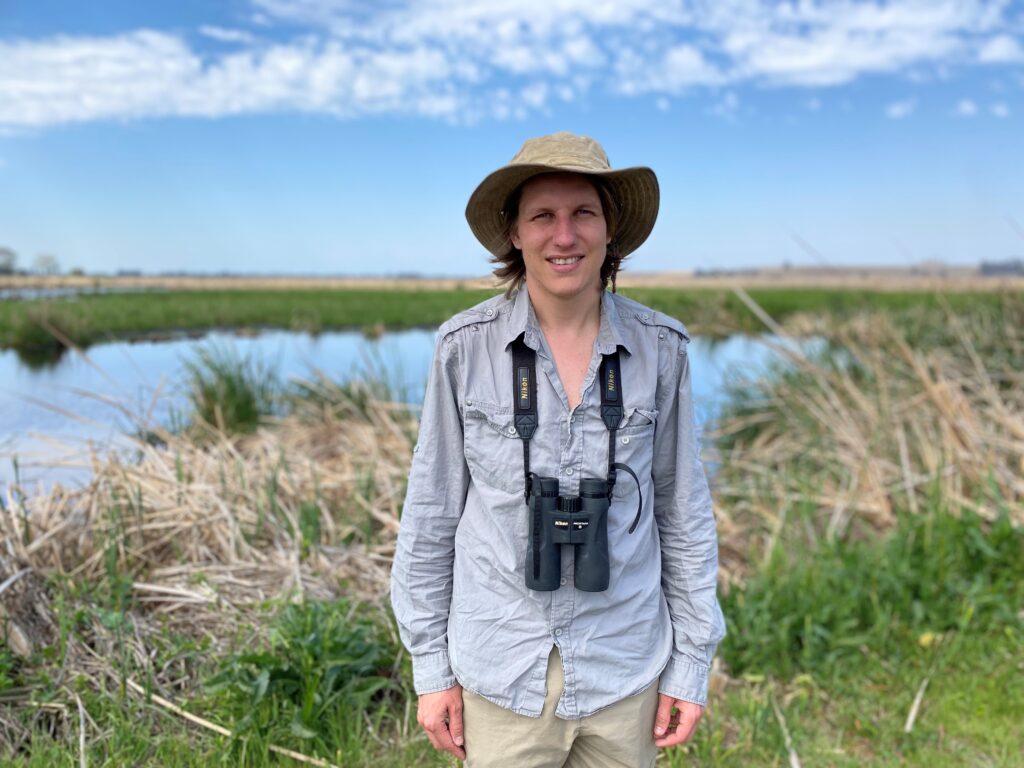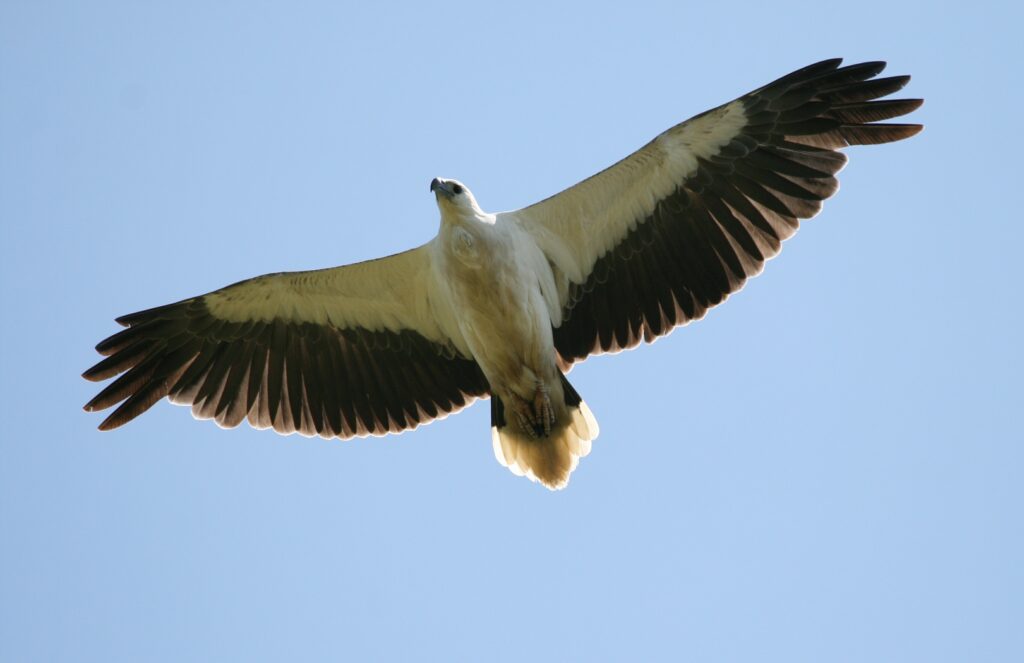A call out to help the Lakes’ Sea-eagles
Do you know of a Sea-eagle nest around the Gippsland Lakes? This National Volunteer Week, BirdLife Australia is putting a call out to the community to be a part of a once in a decade project to monitor the Lakes’ majestic, White-bellied Sea-eagles.
Results will contribute to a long-term study dating back to 1978 to understand the eagle’s breeding and behaviour and inform their ongoing conservation.
“The Lakes’ Sea eagles are currently ‘dating’ and getting ready to form mates and make nests,” said Dr Bradley Clarke-Wood, Wetland Bird Program Coordinator for BirdLife Australia, who is implementing the surveys in partnership with Department of Energy, Environment and Climate Action.
“They typically team up with the same partner and spend time rekindling their relationships over the winter along with repairing their nests, bringing in nest material and getting ready for the breeding season ahead.”
“We are asking the community two questions: do you know where there is a Sea-Eagle nest, and would you be prepared to monitor it over the coming breeding season which runs from October to March?”
“Over ten volunteers contributed to the project last year and we would love to see more people get involved. It would be great if we could uncover new nests and get a fuller picture of where they are nesting in the Gippsland Lakes.”
Across the 2023-24 summer breeding season, BirdLife Australia, BirdLife East Gippsland and over ten community volunteers carried out 44 inspections of 29 Sea-eagle nests. Most nests were around the Gippsland Lakes with a few sites identified as far east as Mallacoota.
Sixteen chicks reached sufficient size to fly and leave the nest – what is known in the bird world as fledgling.
“These young eagles will now be out on their own perfecting hunting skills and exploring their new world. We hope that, with the help of community volunteers, we will be able to uncover more nests and witness more of these threatened species survive.”
White-bellied Sea-eagles produce one to two eggs between June and September which are then incubated for approximately six weeks. When the eggs hatch, adult birds regularly attend the nest to supply the chicks with food. Chicks will fledge from the nest when they are between ten and 12 weeks old.
Community members can get involved in the program by emailing Bradley at bradley.clarke-wood@birdlife.org.au.
This project is part of the Love Our Lakes program made up of 48 projects delivered by 22 partners and made possible by the $248 million investment by the Victorian Government to improve the health of waterways and catchments. Of this, $7.5 million is being provided to improve the health of Gippsland Lakes over three years (2021-2024), through support to the Gippsland Lakes Coordinating Committee and for the delivery of on-ground works and community engagement.


